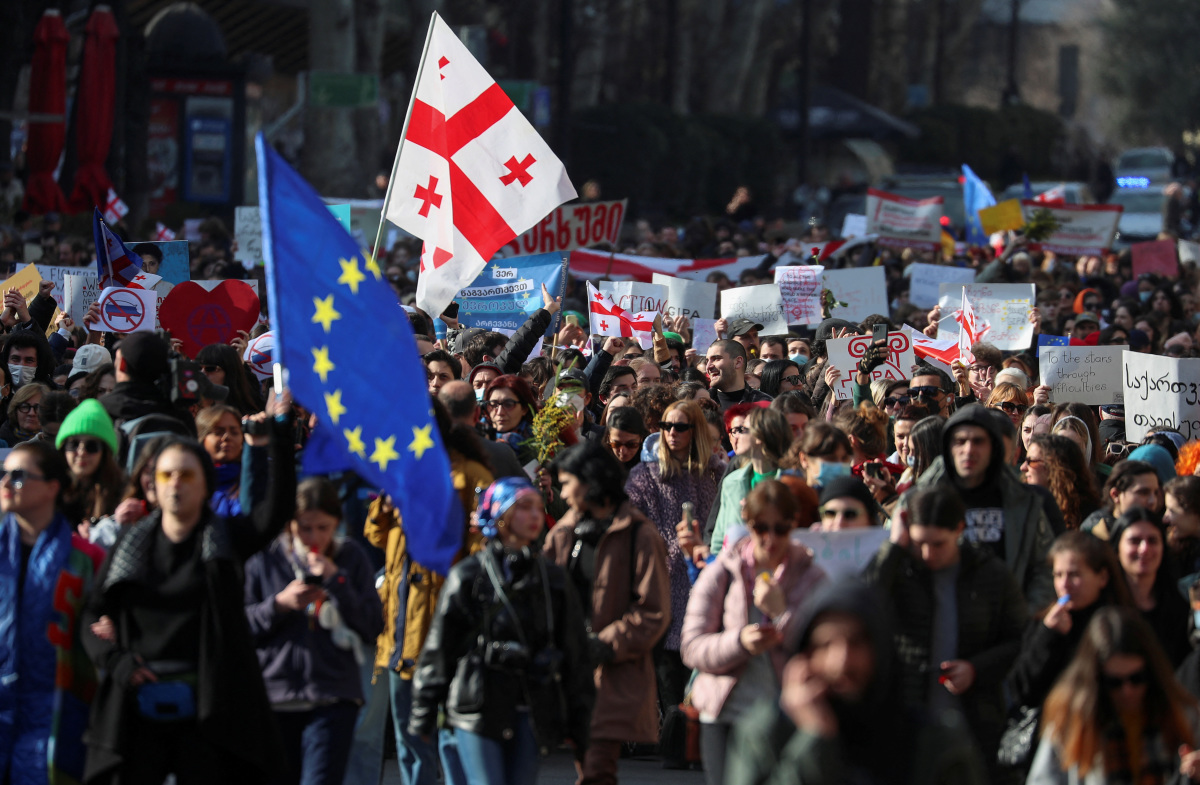Reuters
Georgia’s ruling party said on Thursday it was dropping a bill on “foreign agents” after two nights of violent protests against what opponents said was a Russian-inspired authoritarian shift that imperilled hopes of the country joining the European Union.
The Georgian Dream ruling party said in a statement it would “unconditionally withdraw the bill we supported without any reservations”. It cited the need to reduce “confrontation” in society, while also denouncing “lies” told about the bill by the “radical opposition”.
The bill would have required Georgian organisations receiving more than 20% of their funding from abroad to register as “foreign agents” or face fines. Georgian Dream had previously said the law was necessary to unmask critics of the Georgian Orthodox Church, one of the country’s most powerful institutions.
The European Union’s delegation to Georgia praised the decision to withdraw the bill, writing on Twitter: “We welcome announcement by the ruling party to withdraw draft legislation on ‘foreign influence’.
We encourage all political leaders in Georgia to resume pro-EU reforms, in an inclusive & constructive way”.
At a joint briefing held by opposition parties after the bill was withdrawn, Giga Lemonjala, a representative of the Droa party, said that protests would continue until the government formally denounced the foreign agents bill, and released all those detained during protests.
Parliament gave the draft law initial approval on Tuesday but tens of thousands of protesters then gathered outside parliament, and again on Wednesday. Some protesters threw petrol bombs, stones and plastic bottles at police.
At least one window in the parliament building was broken, and a police car was overturned. Police used tear gas, stun grenades and water cannon to disperse the crowds, and said that 77 people were arrested during Tuesday’s protest.
Opponents of the bill, including Georgian President Salome Zourabichvili, who said she would use her veto if it crossed her desk, have compared it to a 2012 Russian law, which has been used to clamp down on dissent. The Georgian government says the legislation is modelled on U.S. foreign agent laws, in place since the 1930s.
Georgia’s opposition has long criticised Georgian Dream for what it sees as excessive closeness to Moscow. Russia has backed separatists in the breakaway Georgian regions of Abkhazia and South Ossetia.
The bill had angered supporters of Georgian membership in the European Union, after EU officials condemned the draft law, and said it would complicate Georgia’s path to joining the bloc. Last year, the European Union declined to grant Georgia candidate status alongside Moldova and Ukraine, citing stalled political and judicial reforms.







